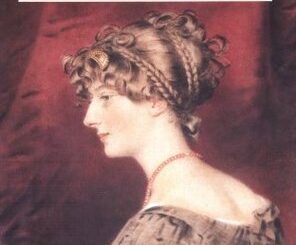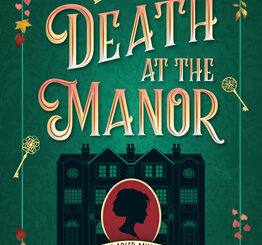The Man in the High Castle | Philip K Dick
Image courtesy : Amazon.in
About the Author
Philip K Dick was an American science fiction writer far ahead of his time. The genius of his work were appreciated only much later by the mainstream literary world. The Man in the High Castle is considered as one of his finest works and won the Hugo award in 1963.
This is the first time I am reading his work. I came to know about this book only after watching the Amazon original series of the same name. What I started expecting to be a riveting thriller of a science fiction book turned out to be an entirely different book – in a pleasant way obviously- with intricate philosophies woven together.
Synopsis
The Man in the High Castle is a what-if, alternate historic fiction. The events in the book take place fifteen years after WWII in a world where the Allies were defeated and the Axis powers won. Tensions mount up between the remaining superpowers-as it does in every world always-as they keep making great plans for the balance of power. The book takes a look at the political events from different perspectives of the characters involved and how it affects them directly or indirectly. In the Reich, the führer is old and weak, while other chiefs play their political game of thrones. The Pacific States of America is trying to maintain order where the colonists and the Americans have to live together on an everyday basis. Amidst all this lies a neutral buffer zone where lives the Man who wrote a controversial book in a High Castle.
My thoughts
Before I dive into the heavy, let me just say how glad I am that I read it on Kindle. Otherwise, how would I be able to find the meaning of all those German words they used? Not that I found all of them, still sometimes when I wanted to know what exactly the characters meant, it came handy. Now to the book.
Have to brush up my history a little bit after this! As I already admitted, after watching the show I had a pretty good idea about what to expect or so I thought. Right from the beginning, I realised that the book and the show are two different things. The inherent story and the setting may be same but these are two entirely different journeys. If you have already watched the show and then started reading, you may feel a lag or the impatient feeling of why-is-nothing-happening. Anyway, the details of that will be discussed in a separate section. For now we are strictly discussing the book version.
One of the most fascinating things about this book is the grim realism portrayed in the simplest ways. There is no scene directly depicting the cruelties of the Nazis or the Japanese atrocities on the Americans. Yet you get a glimpse of the state of social order in the alternate world. Whether it is through someone else’s account or the subtle indications when certain characters interact, it is enough to paint a vivid picture.
On the surface you may find it as an ordinary and eventless read. However the beauty of the story is that it was set up and also written at a period when most science fictions were focused on exaggerated theatrics. The writer here, weaves a beautiful thread interconnecting the ordinary lives of Robert Childan. Frank Frink, Juliana, Tagomi, Reiss and Baynes. Throughout the story, these are the main narrators and whatever we glimpse of this world is mostly through their eyes.
The colonial ways and their triumph would have shaped the society’s mind-set in a completely different direction, at least according to the imagination of the writer. Now, personally, the world wars have had only passive effect on my country. Yes, there are memorials. Our soldiers were forced to fight in these wars yet the remnants of world wars are not something I have grown up with. Even so, as a country that has endured British colonial rule for over 300 years, the impact that such a reign has on our culture is something we cannot ignore. On that level, I relate to this story. The conquerors and the defeated ones living together in a society. Robert Childan’s monologues best describe the insecurities of a common man. Yet, he is careful to make sure that he gets a slave to pick his luggage in order to show his authority. He needs that self-assurance that there is someone beneath him. It is a complex world indeed.
As pointed out by Baynes,
“Then it is in me, too, the psychotic streak. A psychotic world we live in. The madmen are in power. How long have we known this? Faced this? And – how many of us do know it? Not Lotze. Perhaps if you know you are insane then you are not insane. Or you are becoming sane, finally.”
Each character here has a definite journey. Even Frank’s friend Ed Mcarthy left his job and decided to start his own business and motivated Frank to do so. Juliana, for example, was only looking for a few days of escape from her mundane life and ended up in a quest of her own. For those who think the book does not have a great deal of major events, it is not about that. It is about the smallest actions of these normal people and the consequences they face. How these people are moulded by the influence of those major events such as the prominent use of I-Ching, talking about race as a norm, justifying the nuking of Africa and considering the drying of Mediterranean as an achievement. None of these major events were explained in excruciating detail yet reading how these are accepted as a reality in an alternate society terrifies you more than a first-hand account of them.
Finally saving the best for the last, the most important character, “The Grasshopper lies Heavy”. A book inside a book is always fascinating. Anyone who reads naturally loves books. So when a book is an important character within the book, there can be nothing more captivating. You do not see the entire book but here and there, a glimpse or a peak is allowed through each narrator. An interpretation is presented according to the views of the narrator. Not all of the book is our reality. Neither was the author attempting to do so. Even if you haven’t watched the show, the repeated mention of the book by almost every narrator and excerpts from the same will make you curious about it. It is very obvious that the book has a journey of its own. It travelled through various narrators and then eventually met the author. At least that is the case for the reader. Even the ending of the book is revealed way too earlier and yet that is not the actual ending of the book. It has more to it. Just like this book and like Juliana you end up wondering where did the writer get the vast imagination to create this alternate world and the people living in it?
It is a classic. A book filled with philosophies that stands across all times and raises the most important question to mankind, “Who wins the war?” Somehow I feel that what Abdensen did with Grasshopper, Philip K Dick did with High Castle.
If there is anything negative I need to pick out, it will be the pessimism throughout. In its defence, it is a dark world you are witnessing. Yet, I am someone who needs some glimpse of hope to hang on to.
To sum it up, this is a must read! Not an engaging sci-fi thriller but a quiet and chilling account of an alternate world. One of its kind to the best of my knowledge.
In my next post there will be a follow-up of the BookvsTVSeries of #HighCastle.
If you have read the book or watched the show, join this discussion and leave comments about how you felt after you completed it. What is your take on #HighCastle.
 The Man in the High Castle by Philip K. Dick
The Man in the High Castle by Philip K. Dick
My rating: 4 of 5 stars
You can find the book here : Amazon.com_Books_HighCastle , Amazon.in_Books_HighCastle,
You can watch the show here :
AmazonPrimeVideo_orginalseries






